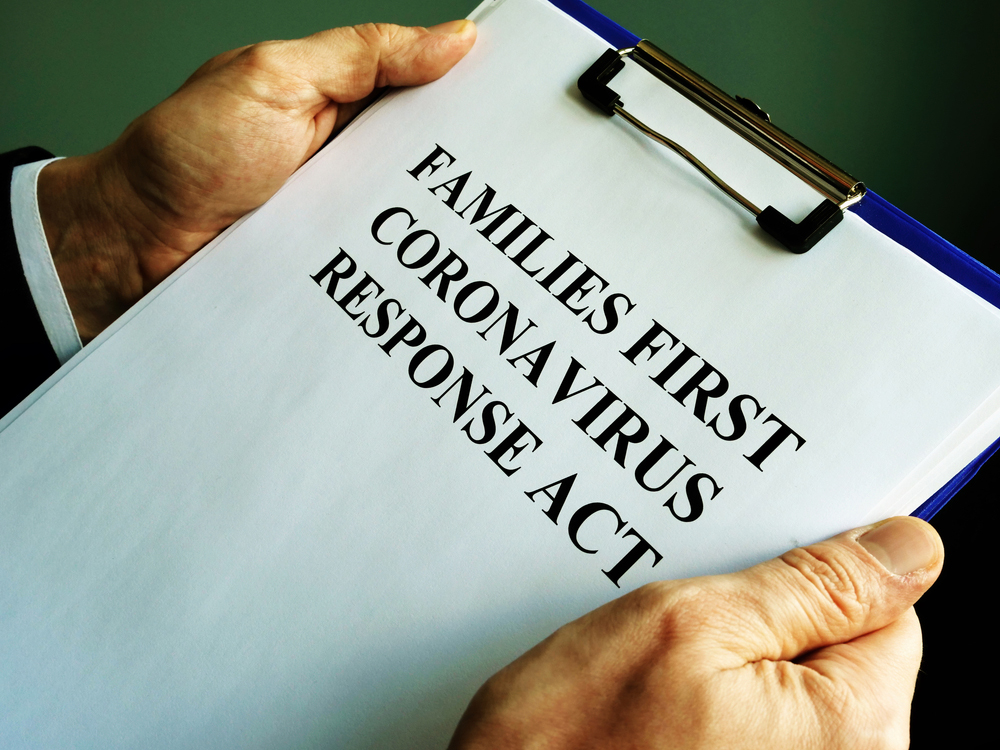Earlier this month, a New York district court judge struck down portions of the U.S. Department of Labor’s (DOL) final rule implementing the Families First Coronavirus Response Act (FFCRA).
The case was filed by the state of New York under the Administrative Procedure Act, which governs the process by which federal agencies develop and issue regulations. Rejecting the DOL’s bid to dismiss the claims, the district court vacated (or tossed out) four separate provisions of the final rule on the grounds they exceeded the agency’s authority under the statute.
How the decision will affect employers outside New York is uncertain. Let’s take a closer look.
District Court’s Decision
First, in a move that will greatly expand access to leave under the FFCRA, the court vacated the work availability requirements of the Emergency Paid Sick Leave Act (EPSLA) and the Emergency Family and Medical Leave Expansion Act (EFMLEA). As a reminder, the EPSLA grants leave to employees who are “unable to work (or telework)” due to a need for leave because of six COVID-19-related criteria.
The EFMLEA similarly grants leave to employees who are “unable to work (or telework) due to a need for leave to care for the son or daughter under 18 years of age of such employee if the school or place of care has been closed, or the child care provider of such son or daughter is unavailable, due to a public health emergency.”
The DOL’s final rule takes the position that when work isn’t available, leave under some of the qualifying circumstances for EPSLA leave (and the sole circumstance for EFMLEA leave) also is unavailable. The court concluded the “work availability” requirement was unreasoned and “patently deficient.”
Second, the court threw out the final rule’s broad, sweeping definition of “healthcare provider,” finding it improperly “hinges entirely on the identity of the employer, in that it applies to anyone employed at or by certain classes of employers, rather than the skills, role, duties, or capabilities of a class of employees.”
The court concluded the DOL’s definition should have focused on the capability of particular employees to furnish healthcare services and not simply that their work is “remotely related to someone else’s provision of healthcare services.”
Third, while the court rejected most aspects of the state’s challenge to the intermittent leave provisions, it nonetheless found the employer consent requirement for such leave was unreasonable. Under the FFCRA, intermittent leave is permitted only for circumstances that don’t logically correlate to a higher risk of infection.
Even for those circumstances, however, the DOL’s final rule demands that employer consent be obtained. The court found no justification for the prerequisite in the context of the qualifying conditions, “which concededly do not implicate the same public-health considerations” as those presenting a higher risk of infection, and it vacated the requirement.
Fourth and finally, the court found the final rule’s requirement that employees taking FFCRA leave submit documentation supporting the leave before its commencement to be at odds with the Act’s language, which instead requires employees to provide as much notice as practicable and/or follow “reasonable notice procedures.” The court vacated the temporal aspect of the documentation requirement— i.e., the rule that documentation be provided before taking leave—but upheld the provision’s substance.
Takeaway
While the court’s decision could be national in scope, the opinion doesn’t specifically indicate that it is, leaving employers outside of New York without clear guidance on whether decisions implicated by the above regulations should be made based on the regulations or the regulations as now affected by the court’s ruling. The answer may lie in how the DOL responds to the opinion.
The DOL is likely to appeal and may request a stay of the decision pending the appeal. Absent a stay, however, companies should check with their labor and employment counsel to assess the ruling’s impact in their particular jurisdiction.
Martin J. Regimbal and Heather D. Hearne are attorneys with The Kullman Firm in Columbus, Mississippi. Regimbal, a shareholder of the firm, can be reached at mjr@kullmanlaw.com.
The post New York Judge Tosses Parts of DOL Regs Covering FFCRA Leave appeared first on HR Daily Advisor.
